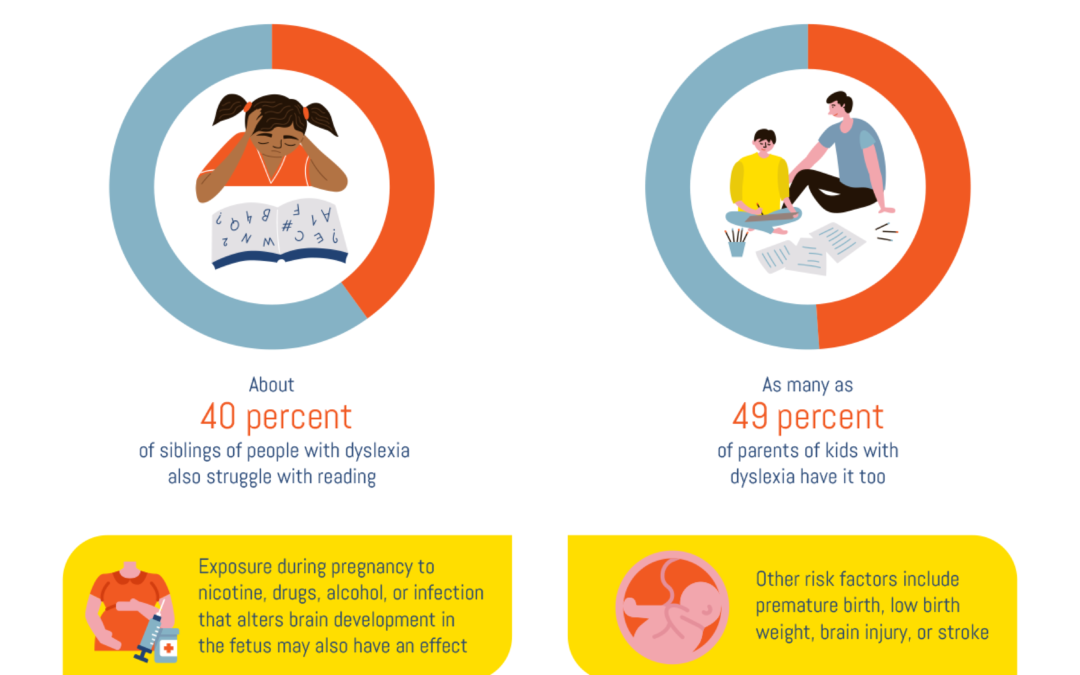
Dyslexia is defined by the International Dyslexia Association as a specific learning disability that is neurological in origin. While dyslexia can make reading more difficult, there are strategies that can help people improve their reading skills and manage the challenges of having it.
What is Dyslexia
Dyslexia is a learning difficulty that impairs a person’s ability to read and write. It commonly affects word recognition, spelling, and the ability to match letters to sounds. While a neurological condition, dyslexia has no relation to intelligence.
- Dyslexia is a common condition caused by a different wiring of the brain
- It is characterized by difficulties with accurate and/or fluent word recognition and by poor spelling and decoding abilities
- Some experts believe between 5 and 10 percent of people have it, and others say as many as 17 percent have it
- People of any age can be tested for dyslexia, although the tests are different for adults than for kids
Common Signs of Dyslexia
Dyslexia can impact people in different ways and symptoms may differ from one person to the other. While people can show symptoms of dyslexia at any age, they tend to appear during childhood.
- Typically, people with dyslexia have trouble decoding words
- They often read slowly and make mistakes, which can impact how well they comprehend what they read
- One skill kids may struggle with early on is phonemic awareness, the ability to recognize sounds in words
- Kids may also avoid reading tasks, have a low reading level for their group, or take longer reading and writing
- People with dyslexia might avoid reading out loud and to themselves, and may become anxious or frustrated when reading
- Dyslexia can also impact everyday skills and activities, including social interaction, memory, and dealing with stress
Causes of Dyslexia
While researchers haven’t yet cracked what causes dyslexia, it tends to run in the family. In general, changes in the DCDC2 gene have been associated with reading problems and dyslexia.
- About 40 percent of siblings of people with dyslexia also struggle with reading
- As many as 49 percent of parents of kids with dyslexia have it too
- Exposure during pregnancy to nicotine, drugs, alcohol, or infection that alters brain development in the fetus may also have an effect
- Other risk factors include premature birth, low birth weight, brain injury, or stroke
How Dyslexia is Diagnosed
While some signs may show early, the best way to know for sure if someone has dyslexia is with a full evaluation done by a doctor at school, or privately. A diagnosis can help a person with dyslexia receive the support and accommodations necessary.
- There are a few types of professionals that can evaluate people for dyslexia, including school and clinical psychologists, or neuropsychologists
- Evaluators generally give a series of dyslexia tests, as well as tests in other areas to assess for strengths and weaknesses
- An evaluation measures skills like reading accuracy and fluency, as well as reading and listening comprehension
Everyday Life Hacks
- Use Notes and Lists: See it, Say it, Write it, Review it
- Keep a Bulletin board w/ schedule and important dates in a prominent location
- Maintain a structured routine to ensure your mind-body balance
- Stay hydrated and exercise to help regulate mood
- YouTube or Google it using audio applications
- Ask family members to provide you extra time to process a difficult discussion
- Honor a daily quiet hour – dyslexia is a processing disorder too many words can be overwhelming – plan for word rest
- Ask for loved ones to help you digest important information by using fewer words
- Watch your volume and tone; it is easy to get loud when you are struggling to find your words
- Give GRACE to yourself and others: Give Respect, Admiration, Courtesy, and Empathy
People with dyslexia will never outgrow it. However, while it impacts learning, people with dyslexia will find that it doesn’t take away from their potential success. With the right approach and strategy, managing the challenges that come with it won’t be a problem.
Sources
https://theara.com/dyslexia/
http://dyslexia.yale.edu/dyslexia/what-is-dyslexia/
https://www.mayoclinic.org/diseases-conditions/dyslexia/symptoms-causes/syc-20353552
https://www.understood.org/articles/en/what-is-dyslexia
https://dyslexiaida.org/definition-of-dyslexia/
https://www.health.harvard.edu/a_to_z/dyslexia-a-to-z
https://www.medicalnewstoday.com/articles/186787
Embed This Image On Your Site (copy code below):

